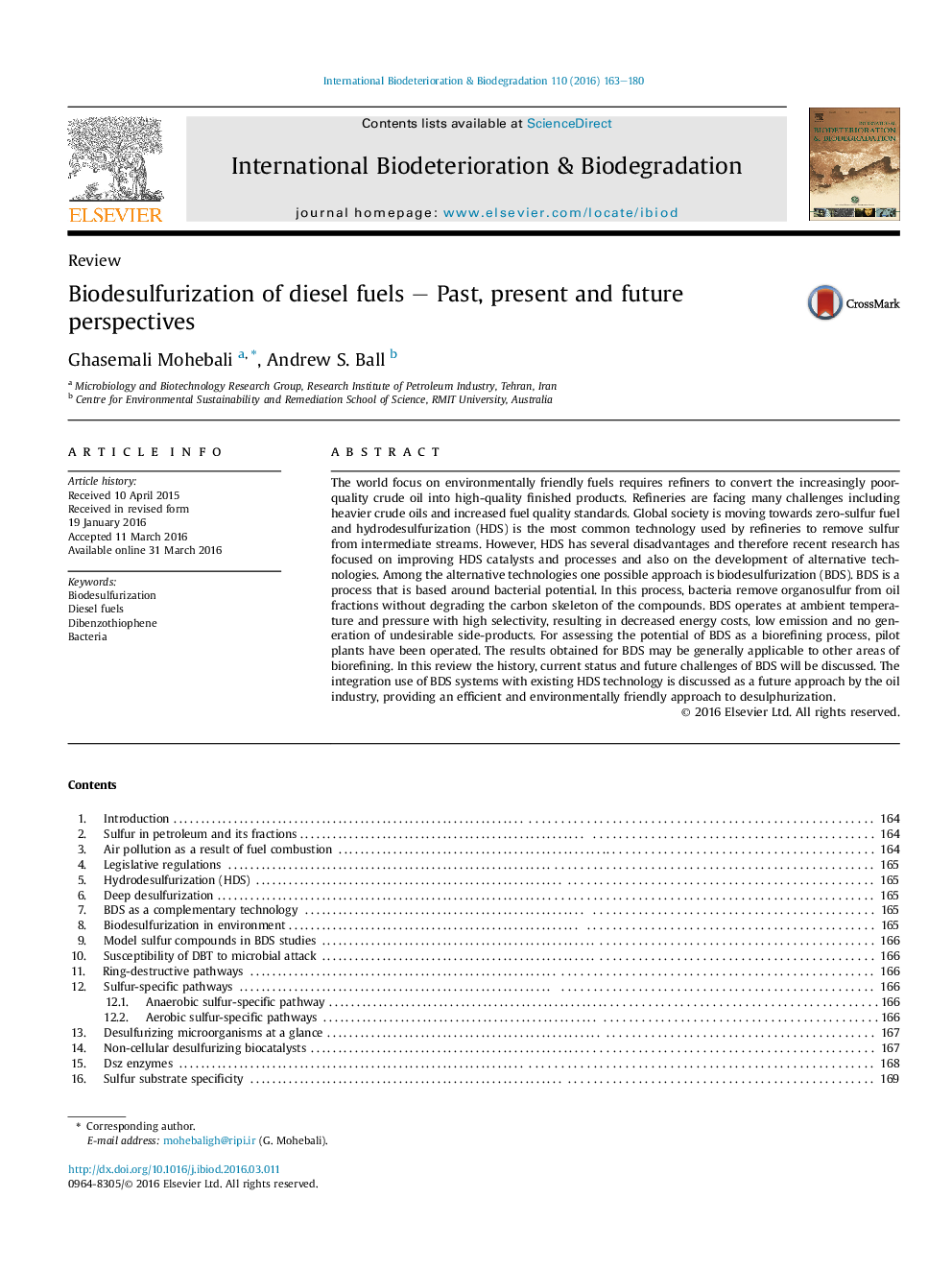| Article ID | Journal | Published Year | Pages | File Type |
|---|---|---|---|---|
| 4364205 | International Biodeterioration & Biodegradation | 2016 | 18 Pages |
•With the new EPA regulations, global society to meet the clean fuels, is moving towards zero-sulfur fuel.•Hydrodesulfurization (HDS) is the most common technology used by refineries.•Recent research has focused on improving HDS processes and developing alternative technologies.•Among the alternative technologies one possible approach is biodesulfurization (BDS).•In this review the history, current status and future challenges of BDS will be discussed.
The world focus on environmentally friendly fuels requires refiners to convert the increasingly poor-quality crude oil into high-quality finished products. Refineries are facing many challenges including heavier crude oils and increased fuel quality standards. Global society is moving towards zero-sulfur fuel and hydrodesulfurization (HDS) is the most common technology used by refineries to remove sulfur from intermediate streams. However, HDS has several disadvantages and therefore recent research has focused on improving HDS catalysts and processes and also on the development of alternative technologies. Among the alternative technologies one possible approach is biodesulfurization (BDS). BDS is a process that is based around bacterial potential. In this process, bacteria remove organosulfur from oil fractions without degrading the carbon skeleton of the compounds. BDS operates at ambient temperature and pressure with high selectivity, resulting in decreased energy costs, low emission and no generation of undesirable side-products. For assessing the potential of BDS as a biorefining process, pilot plants have been operated. The results obtained for BDS may be generally applicable to other areas of biorefining. In this review the history, current status and future challenges of BDS will be discussed. The integration use of BDS systems with existing HDS technology is discussed as a future approach by the oil industry, providing an efficient and environmentally friendly approach to desulphurization.
